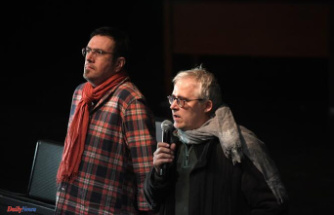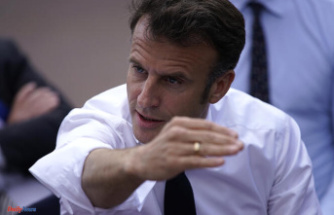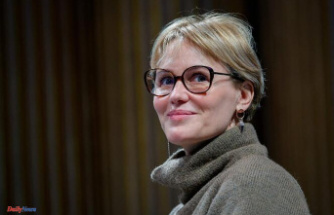On April 5, 1971, Le Nouvel Observateur published the “Manifesto of the 343” – the number of women, famous or anonymous, who declared having had an abortion, a practice punishable by prison. “Who knocked up all 343 sluts? », headlines Charlie Hebdo the following Wednesday. Catherine Deneuve, Agnès Varda, Marguerite Duras, Jeanne Moreau, Françoise Sagan, Delphine Seyrig, Gisèle Halimi signed the text, contributing to its impact as well as a form of protection for anonymous signatories.
The petition recalls that “a million women have abortions each year in France (…) in dangerous conditions due to the clandestinity to which they are condemned”. A bombshell, which paved the way for the Veil law, four years later, legalizing voluntary termination of pregnancy (IVG).
It is the story of this political gesture – this gesture – that is told by director Valérie Jourdan and screenwriter Adeline Laffitte (author of a graphic novel, Le Manifeste des 343. L'histoire d'un combat, Marabout 2020) . “We wanted to show how, despite the quarrels and divergent ideas, these women led the fight and managed to bring together enough to have an impact,” she explains.
An exhilarating mise en abyme, as the right to abortion prepares to enter the Constitution. Thanks to this manifesto, “women, feminists and abortion victims burst into the public debate, until now the prerogative of experts, and became its main actors,” analyzes the historian of feminism Bibia Pavard.
Role long eclipsed
Following the chronological order of events – which preserves a form of intrigue – the documentary, using press and television archives, brings to the forefront these women who claimed responsibility for this act of civil disobedience, while their role was long eclipsed in favor of men, such as Jean Moreau, at the origin of the manifesto, or Jean Daniel, founder and director of the reference weekly of the left in post-May 68 France. Thus Nicole Muchnik, journalist at Nouvel Observateur, and Anne Zelensky, activist for the Women's Liberation Movement (MLF).
In a country still largely marked by the weight of the Church and where the irremovable patriarchy reigns supreme, all bear witness to the horror of abortions carried out clandestinely by 800,000 to 1 million women each year. All in silence. “Even my friends didn’t tell me,” remembers Claudine Monteil, friend and biographer of Simone de Beauvoir.
“The meeting of all these women was called “me too” [“me too”, in English], underlines Liliane Kandel, sociologist and member of the MLF. This is how you start a movement! »












